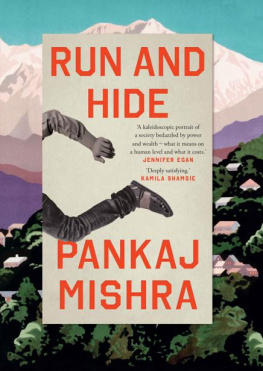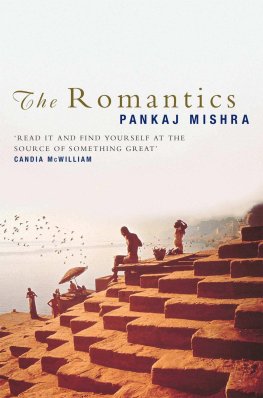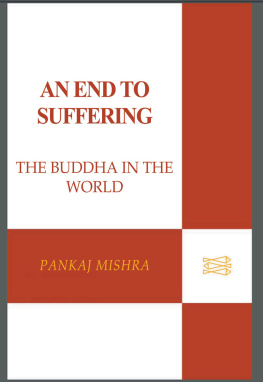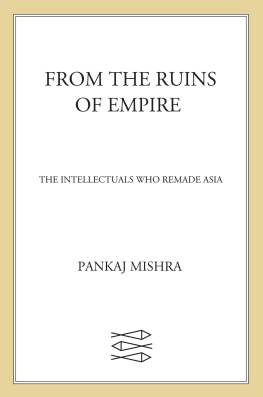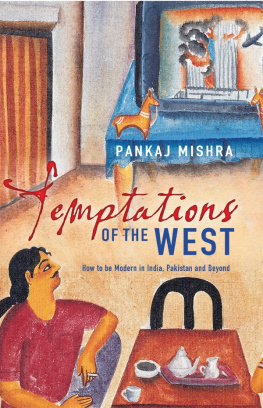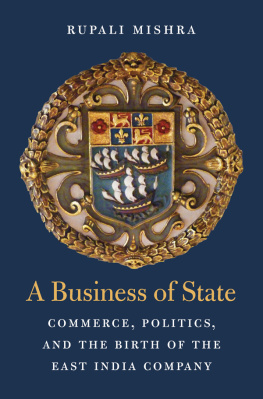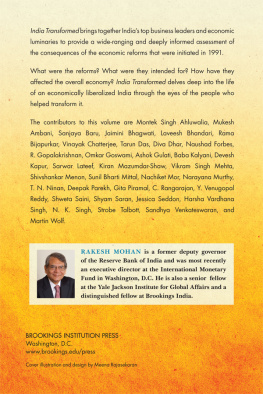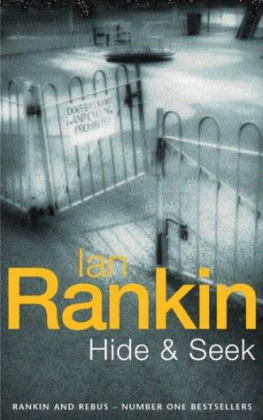Pankaj Mishra - Run and Hide: A Novel
Here you can read online Pankaj Mishra - Run and Hide: A Novel full text of the book (entire story) in english for free. Download pdf and epub, get meaning, cover and reviews about this ebook. year: 2022, publisher: Juggernaut, genre: Detective and thriller. Description of the work, (preface) as well as reviews are available. Best literature library LitArk.com created for fans of good reading and offers a wide selection of genres:
Romance novel
Science fiction
Adventure
Detective
Science
History
Home and family
Prose
Art
Politics
Computer
Non-fiction
Religion
Business
Children
Humor
Choose a favorite category and find really read worthwhile books. Enjoy immersion in the world of imagination, feel the emotions of the characters or learn something new for yourself, make an fascinating discovery.
- Book:Run and Hide: A Novel
- Author:
- Publisher:Juggernaut
- Genre:
- Year:2022
- Rating:5 / 5
- Favourites:Add to favourites
- Your mark:
- 100
- 1
- 2
- 3
- 4
- 5
Run and Hide: A Novel: summary, description and annotation
We offer to read an annotation, description, summary or preface (depends on what the author of the book "Run and Hide: A Novel" wrote himself). If you haven't found the necessary information about the book — write in the comments, we will try to find it.
Run and Hide: A Novel — read online for free the complete book (whole text) full work
Below is the text of the book, divided by pages. System saving the place of the last page read, allows you to conveniently read the book "Run and Hide: A Novel" online for free, without having to search again every time where you left off. Put a bookmark, and you can go to the page where you finished reading at any time.
Font size:
Interval:
Bookmark:

For J.H.B.
Part one
One
During Aseems first days in prison, I lull myself into sleep every night with a vision: I am swimming across the clear calm surface of the sea until I am far from the shore, and then, turning and lying on the water, my face to the sky, I let myself sink.
The trail of breath-bubbles fading, the water penetrates my nostrils and mouth and gradually fills my body until I am heavy and falling soundlessly, deeper into the endless blue.
I am asleep before my body comes to rest on the messy floor of the sea.
Thats how I used to lull myself to sleep as a child; and if I feel compelled to speak to you of those times, and to pick out of the past those scraps you overlooked in your own book, and unearth memories that I long suppressed, it is because they foreshadowed everything that happened between us.
I am sure Ill fall into the wrong tone, and risk provoking your disgust and anger; but I must speak, too, of Aseem. My first friend and early protector, he not only introduced me to you; he also encouraged me to pursue you, before so violently and inextricably knotting all our destinies together.
Aseem, who saw himself as a mascot of triumphant self-invention, loved initiating his friends into his dream of power and glory. He presented it, in fact, as an existential imperative, ceaselessly quoting V. S. Naipaul: The world is what it is; men who are nothing, who allow themselves to become nothing, have no place in it.
It wont be easy, he would say, for self-made men of our lowly social backgrounds. He would cite Chekhov how the son of a slave has to squeeze, drop by drop, the slaves blood out of himself until he wakes one day to find the blood of a real man coursing through his veins. He would become very emotional speaking of the struggle to take ourselves seriously which he said came before the struggle to persuade others to take us seriously, and was more exacting.
He always seemed so fluent and so certain; I couldnt argue with him. It is only in retrospect that I can see the danger Aseem never reckoned with: that in our attempts to remake ourselves, to become real men simply by pursuing our strongest desires and impulses, with no guidance from family, religion or philosophy, our self-awareness would narrow, the distortions in our characters would go unnoticed, until the day we awaken with horror to the people we had become.
The warning signs were there the very first time I met Aseem. I never told you about it during all the conversations we had about him, Virendra and the others when you were researching your book: how on our first night at IIT we were awakened by hollering men long past midnight from the deep sleep that follows nervous exhaustion and herded into a crowded seniors room, where the blast of cigarette smoke was strong enough to knock you down, and where a student wearing a lungi that exposed his thick hairy legs shouted Behenchod with a Tamil accent, and asked us to strip and get down on the floor on our hands and knees.
This was Siva; heavy-set, his big round shaven head seemed to sit necklessly on his shoulders. He was furious, or feigned great fury, because the three of us had somehow missed a broader corralling of freshers that night.
You sister-fuckers, he shouted from his bed, where several of his friends lounged, their bespectacled eyes looking on us with malign inquisitiveness. You think you dont have to give us your introduction! Tell me, who the fuck are you? And I want you to bark like the good little dogs you are!
From our canine posture, we intoned, simultaneously:
I am Arun Dwivedi, Mechanical Engineering, All India Rank 62.
I am Virendra Das, Computer Science, All India Rank 487.
I am Aseem Thakur, Mechanical Engineering, All India Rank 187.
We barked as Sivas cronies dissolved into giggles, and Siva himself emitted that booming laugh that you would hear many years later, when gathering material for your book, in those conversations taped by the FBI and leaked by his defence team to journalists.
Virendra, Aseem and I had met earlier that day in the student hostel assigned to us. So much already bound us together. At some point in our early teens, when our school grades started to show promise, our parents had decided that they would go into debt, skimp on clothes and food, and deny education to our siblings, in order to put their sons in the Indian Institute of Technology and on the path to redemption from scarcity and indignity.
For years afterwards, they told us that they were slaving from morning to night to give us the chance in life they themselves had never had. Our gifts of memory and concentration turned out to be a curse; the immense effort to enter the countrys most prestigious engineering institution destroyed our childhoods, stuffing it with joyless tasks and obligations, and the dread of failure.
Now, our long wait, after passing the worlds toughest and most competitive examinations, was finally over. On our first meeting, however, we barely exchanged a word. Overwhelmed initially by our achievement of fulfilling our early promise, we had been quickly demoralised into silence by seeing our ideal in the harsh light of day.
Peeling paint, naked light bulbs, croaking fans and the rainwater in the puddles jumping with mosquito larvae seemed to suggest that we had barely made it out of our dire lower-middle-class straits (I hadnt known, in those days before Google Images, what to expect of the portal to the worlds richness.) The walls of our room were distempered sallow, with marks where oiled heads had rested, and smudges where mosquitoes had been squashed; the concrete floor of a pebbly roughness was encrusted with irremovable dirt, and in the darkness below our cots the layers of dust looked like velvet rags.
The dining hall with its dangerously swaying ceiling fans was on that first day a swirl of fathers in broad-lapelled blazers with brass buttons and thickly padded shoulders that left their hands lolling uneasily by their sides, and mothers unsteady on their feet in Kanjivaram and Benares silk saris and heavy gold jewellery, wearing smudged lipstick in the inexpert way of those who never wear it people finally trying on self-satisfaction after subjecting themselves and their children to years of brutal fear and anxiety.
The air was full of the chemical tang of Old Spice aftershave and the flowery scent of Ponds talcum powder, suggesting, together with the dressed-up men and women, an attempt at celebration.
A staleness still lay over the hall, with chipped Formica tables and sooty blue walls, where flies escaping the fans bided their time.
Virendra, Aseem and I were among the very few newcomers unaccompanied by parents that evening. Our fathers and mothers knew better than to betray our origins at this crucial first step in their sons ascent to respectability. On examination day, my mother had held a day-long Satyanarayan puja at home; and my father had paid for me to send him a telegram from Delhi when the results of the Joint Entrance Exams came out.
On receiving it, my mother told me, he had run around the railway station he worked at, distributing besan laddoos from an open box to people probably as bemused by his extravagant elation as I was to hear of his transformation from sullen brute to deliriously proud father.
When the train taking me to my first semester at IIT Delhi pulled away, he waved. His lips moved, perhaps to say something, something that could not easily be put into words, then or ever: that I now belonged to a world that had scorned him. He would never dare come to Delhi while I was there; my mother could not even dream of the prospect; and I felt grateful for their psychic fetters every time I imagined them at the IIT s gates, asking in their dehati Hindi for me.
Font size:
Interval:
Bookmark:
Similar books «Run and Hide: A Novel»
Look at similar books to Run and Hide: A Novel. We have selected literature similar in name and meaning in the hope of providing readers with more options to find new, interesting, not yet read works.
Discussion, reviews of the book Run and Hide: A Novel and just readers' own opinions. Leave your comments, write what you think about the work, its meaning or the main characters. Specify what exactly you liked and what you didn't like, and why you think so.

